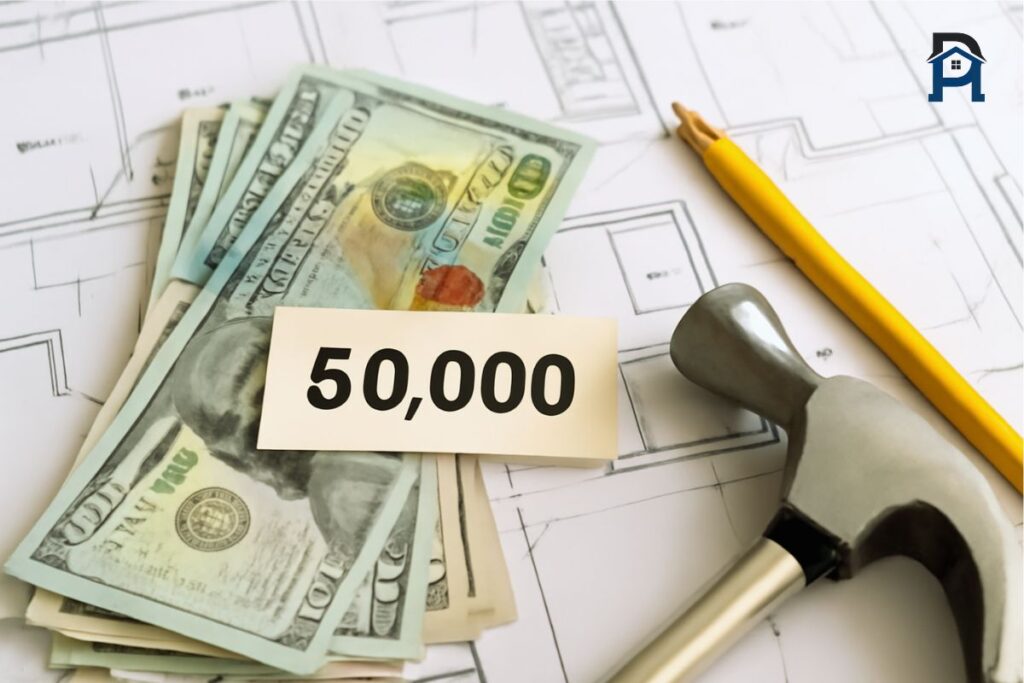If you’ve ever asked yourself, Can you renovate a condo?” — you’re not alone. I asked that same question the day I signed papers for my own condo. I pictured tearing down walls, adding a new kitchen island, and maybe finally having the bathroom I always dreamed of. But here’s the thing: renovating a condo isn’t as simple as remodeling a singlefamily house. You own your unit, sure, but you also share walls, plumbing, and sometimes even air vents with your neighbors. That changes everything.
The good news? Yes, you can renovate a condo — kitchens, bathrooms, flooring, lighting, and more. The catch? You’ll need to follow your condo association’s rules, get approvals, and work around shared systems. Don’t worry, I’ll walk you through all of this. By the end, you’ll know exactly what’s possible, what’s off-limits, and how to plan a renovation without losing your sanity.
Snippet-Ready Definition
Can you renovate a condo? Yes, but with conditions. Interior updates like kitchens, bathrooms, and flooring are allowed, while shared systems and structural walls usually need condo board approval and city permits before work begins.
Mission Statement
Our mission is to simplify condo renovations by offering clear, practical, and trustworthy advice. We help condo owners navigate approvals, manage costs, and design homes they love — without stress or surprises.
Understanding Condo Renovation Basics
When you buy a condo, you’re not just buying four walls. You’re buying into a community — complete with bylaws, boards, and shared responsibilities. That’s why asking “can you do renovations in a condo” is a little more complex than “can I renovate my house?”
Here’s what makes condos unique:
- You own your unit’s interior — usually from the drywall in. That means you can paint walls, swap flooring, remodel your bathroom, or redesign your kitchen.
- You share common elements — hallways, lobbies, building exteriors, roofing, structural walls, plumbing stacks, and electrical systems often belong to everyone in the building. That means you can’t just rip out a load-bearing wall or move the main plumbing pipe.
- Rules are strict for a reason — one careless renovation could cause leaks, electrical fires, or noise problems for everyone else.
A quick example: when I replaced my hardwood floors, my condo board required proof of soundproofing. Why? Because without it, every step would echo into the unit below mine. It delayed the project by three weeks — but it saved me from angry neighbors later.
So, to answer the core question: if you own a condo can you renovate it? Yes, absolutely. But you’ll need to understand the boundaries between “your space” and “the building’s shared space.”
Rules, Regulations, and Board Approvals
Here’s the part that trips up most new condo owners: approvals. Unlike renovating a house, you can’t just hire a contractor and start swinging a hammer.
Step 1: Review Your Condo Documents
Every condo association has governing documents:
- CC&Rs (Covenants, Conditions & Restrictions)
- Bylaws
- Rules and Regulations
These documents explain what renovations are allowed, the process for approval, and even technical requirements like soundproof flooring or waterproofing standards.
For example:
- Installing new tile in your bathroom? You may need a waterproof membrane that meets board standards.
- Upgrading windows? You likely can’t — those are usually considered “common elements.”
- Want to remove a wall? If it’s load-bearing, expect a big “no” unless engineers and board approvals are involved.
Step 2: Submit Plans to the Board
Most boards require:
- Detailed renovation plans (with drawings)
- Contractor information and insurance certificates
- A proposed timeline (including start/end dates)
The board reviews your request to make sure your renovation won’t:
- Affect building structure
- Disturb neighbors beyond acceptable limits
- Violate noise, dust, or work-hour rules
I once had to wait six weeks just for the board to review my bathroom renovation plan. It was frustrating, but in the end, they caught a potential plumbing issue I hadn’t considered.
Step 3: Secure City or Municipal Permits
Even if the condo board approves, your city might require permits for:
- Structural changes
- Plumbing modifications
- Electrical work
- Major HVAC upgrades
Skipping this step is risky. Not only can you get fined, but unpermitted work can void insurance or complicate selling your condo later.
Step 4: Understand Common Restrictions
Most condo boards place limits on:
- Structural changes: Load-bearing walls are usually untouchable.
- Exterior changes: Balconies, windows, and facades are off-limits.
- Flooring: Many condos require soundproof underlayment.
- Shared systems: Plumbing stacks, HVAC ducts, and electrical risers can’t usually be moved.
So, when someone asks “what renovations can you do in a condo?” — the answer depends on these rules. Generally, you can redo kitchens, bathrooms, and interiors, but shared systems and structures are where restrictions apply.
Planning Your Condo Renovation
Here’s the thing: a successful condo renovation starts long before the first hammer hits the wall. Planning is everything. I learned this the hard way when my kitchen project got delayed because I didn’t factor in board review time. Let’s make sure you don’t hit those same bumps.
Set Clear Goals
Ask yourself: What do I really want out of this renovation? Are you trying to boost resale value, improve functionality, or just make your place feel more like home? Write down your priorities. For me, it was all about storage and upgrading the outdated bathroom. That clarity helped me avoid overspending on features I didn’t truly need.
Budget Smartly
Condo renovations often cost more than house remodels, mainly because of rules, permits, and specialized contractors. A ballpark figure? $100–$300 per square foot depending on the project. Always add a 15–20% contingency for surprises. (Trust me, you’ll need it.)
To give you an idea:
- Bathroom renovation in a condo: $15,000–$30,000 depending on finishes
- Kitchen update: $20,000–$50,000
- Flooring replacement: $8–$15 per sq. ft., plus soundproofing materials
Timelines & Patience
Unlike houses, condo renovations come with “work hours.” Your contractor can’t start at 7 am and work until midnight. Most buildings limit noisy work to weekdays, 9–5. That means what should take two weeks might take four or more. Factor this into your expectations.
Hire the Right People
Always hire contractors with condo experience. They’ll know how to:
- Handle board paperwork
- Schedule elevator time for material delivery
- Follow building safety rules
- Keep noise and dust under control
I once hired a contractor who had never worked in a condo building before. Within a week, I had complaints from neighbors about dust in the hallway. Lesson learned.
Room-by-Room Renovation Possibilities
Now let’s answer the fun part: If you own a condo, can you renovate it the way you want? Yes — but each room has its quirks.
Kitchens
This is usually the heart of condo renovations. You can upgrade cabinets, counters, appliances, and lighting freely. But moving plumbing lines or electrical outlets is trickier because they tie into the building’s main systems. A smart move? Keep sinks and stoves where they are, but upgrade everything around them.
Pro Tip: If you dream of an open-concept kitchen, check with an engineer first. That wall you want to remove might be structural.
Bathrooms
Condo bathrooms are both the most common and most challenging reno projects. You can update tiles, tubs, vanities, and showers. But be careful with plumbing stacks — those pipes are shared with neighbors above and below.
Example from my own reno: I wanted a rainfall shower, but it required raising the ceiling pipes. The board denied it because it could affect the unit above me. Instead, I went with a wall-mounted shower system. It wasn’t my first choice, but it still transformed the space.
Living Rooms & Bedrooms
Here you’ve got more freedom. Paint, flooring, lighting — all fair game. The big rule is flooring soundproofing. Many boards require a certain decibel rating for underlayment to prevent noise transfer. So, if you’re switching carpet to hardwood, expect to invest in good soundproof padding.
Walls & Layouts
Removing or shifting walls is possible only if they’re not load-bearing. If they are, you’ll need engineering reports, board approval, and city permits. Some boards just say no altogether. If that’s the case, consider partial walls, glass partitions, or sliding doors to create a more open feel.
Shared Systems
This is the part nobody thinks about until it’s too late. HVAC ducts, electrical risers, and plumbing stacks aren’t yours alone. Any modification here needs approval. Sometimes it’s a flat-out no.
Expert Tips & Less Common Renovation Ideas
Most guides stop at “kitchen, bath, flooring.” Let’s go a little deeper. These are things I wish I knew before renovating my condo.
Smart Home Upgrades
Lighting automation, smart thermostats, and app-controlled locks are all doable — and they add a modern touch without affecting shared systems. I added smart dimmers, and the best part is I didn’t need board approval.
Sustainable & Green Renovations
More boards are open to eco-friendly upgrades:
- Low-VOC paints (better for indoor air)
- LED lighting (saves on electric bills)
- Energy-efficient appliances (often board-approved without fuss)
Modular & Prefabricated Elements
Here’s a trick: if your board is strict, consider modular options. Prebuilt closets, sliding partitions, or modular bathroom units can upgrade your space without touching structural systems.
Creative Storage & Small-Space Hacks
Condos are often short on storage. Use vertical shelving, built-in benches with storage, or Murphy beds. My personal favorite: I turned a hallway nook into a built-in desk with cabinets above. It completely changed how I use the space.
Noise Mitigation
If you’ve got noisy neighbors above, invest in acoustic ceiling panels. They look stylish and drastically reduce noise complaints.
Real-Life Example
One neighbor in my building added a full home office setup using modular glass partitions. It gave them a private workspace but didn’t touch any walls — so the board approved it in days. That’s the kind of out-of-the-box thinking that wins.
Cost, Value & Financing Considerations
Here’s the truth: condo renovations can get pricey. Why? Because you’re not just paying for materials and labor — you’re also paying for compliance, permits, and sometimes even security deposits with your condo board.
Typical Costs
While costs vary by city and finish level, here are ballpark figures most condo owners can expect:
- Condo bathroom renovation: $15,000 – $30,000
- Condo kitchen remodel: $20,000 – $50,000+
- Flooring replacement: $8 – $15 per sq. ft. (plus soundproof underlayment)
- Full condo renovation: $100 – $300 per sq. ft.
Keep in mind: how much can you renovate a condo often depends on what’s financially sensible. For example, spending $120,000 on a $200,000 condo might not bring a great return.
High-Impact, Budget-Friendly Upgrades
If your budget’s tight, focus on improvements that deliver the most bang for your buck:
- New countertops and cabinet fronts in the kitchen
- Updated vanity, lighting, and mirrors in the bathroom
- Luxury vinyl plank flooring (stylish, soundproof-friendly, and durable)
- Fresh paint in neutral colors
These updates are less likely to require heavy board involvement and still transform your unit.
Financing Options
Not everyone has cash sitting around for renovations. Here are common financing routes:
- Home Equity Line of Credit (HELOC): If your condo has built equity, this is often the cheapest financing.
- Personal loans: Higher interest but easier to access.
- Contractor financing plans: Some renovation companies offer payment plans.
- Condo board-approved loans: Rare, but some buildings have partnerships with lenders for renovation-friendly financing.
Risks, Challenges & Mistakes to Avoid
Condo renovations come with unique risks that can trip up even experienced homeowners.
Common Mistakes
- Skipping approvals: Doing work without board permission can lead to fines and even forced removal of your upgrades.
- Ignoring noise rules: I’ve seen renovations shut down mid-project because contractors worked past permitted hours.
- Hiring inexperienced contractors: If they don’t understand condo logistics, you’ll deal with hallway messes, elevator misuse, and unhappy neighbors.
- Underestimating costs: Always budget 15–20% extra.
Liability & Insurance
Always confirm that your contractor has proper insurance. Many boards require a Certificate of Insurance (COI) before work starts. If your contractor causes damage to another unit (say, a water leak), you could be held financially responsible.
What If the Board Says No?
Don’t panic. You can:
- Appeal the decision with revised plans.
- Hire an engineer to show structural safety.
- Scale back the project into board-approved smaller upgrades.
I once had my request to install recessed lighting denied because it required cutting into concrete ceilings. Instead, I opted for stylish track lighting that gave the same vibe without touching structural elements. Problem solved.
What You Can vs. Can’t Renovate in a Condo
| Renovation Area | Usually Allowed | Often Restricted / Needs Approval |
| Painting & décor | ✅ Allowed | – |
| Flooring | ✅ Allowed (with soundproofing) | Needs approval in most condos |
| Kitchen & bath upgrades | ✅ Fixtures, cabinets, tiles | Moving plumbing stacks/electrical |
| Structural walls | ❌ Not allowed | Requires engineer + board permits |
| Exteriors (windows, balconies) | ❌ Not allowed | Controlled by condo association |
How to Renovate a Condo Successfully
- Read your condo rules: Check CC&Rs, bylaws, and regulations.
- Get board approval: Submit plans, contractor info, and timelines.
- Apply for permits: Plumbing, electrical, or structural changes need city permits.
- Hire condo-experienced contractors: They understand board rules and logistics.
- Plan for delays: Work hours are limited, so renovations take longer than houses.
- Stay compliant: Follow noise, safety, and dust-control rules.
FAQs About Condo Renovations
Can you renovate a condo bathroom?
Yes, but with limits. You can upgrade fixtures, tiles, and layouts, but moving plumbing stacks usually isn’t allowed. Always waterproof to board standards.
If you buy a condo, can you renovate it?
Yes, but new owners sometimes underestimate how long approvals take. Plan for a few months between closing and move-in if renovations are part of your plan.
If you own a condo, can you renovate it freely?
Not freely. Ownership gives you rights to the interior, but not shared or structural parts. Boards still have the final say on major projects.
What renovations can you do in a condo without approval?
Usually cosmetic ones: painting, installing new appliances, changing cabinet doors, swapping out light fixtures. Anything structural, plumbing, or electrical usually requires board review.
How much can you renovate a condo without losing value?
Experts suggest keeping total renovations under 15–20% of your condo’s value if resale is your goal. Over-renovating can make it harder to recoup costs.
Conclusion
So, can you renovate a condo? Absolutely — but with patience, planning, and respect for the rules. Unlike houses, condos come with an extra layer of approvals and restrictions, but that doesn’t mean you can’t create a home you love.
Here’s the big takeaway:
- Yes, you can renovate kitchens, bathrooms, flooring, and interiors.
- No, you usually can’t touch structural walls, exterior facades, or shared systems.
- Board approvals and permits are your best friends. They keep you legal, safe, and insured.
- Smart planning saves money and stress. Hire experienced contractors, budget extra, and expect delays.
The best part? When the dust clears and you finally step into your upgraded condo, it feels incredible — because you’ve not only improved your space but also navigated a system that requires patience and persistence.
If you’re on the fence, start small: update lighting, paint, or flooring. Then, when you’re ready, tackle bigger projects like bathrooms or kitchens. With the right approach, your condo can feel brand new — without breaking rules or the bank.
Disclaimer
This article is for informational purposes only. Renovation rules differ by condo association, city, and state. Always consult your governing documents, condo board, and licensed professionals before starting any renovation.

I’m Bilal, the founder of Dwellify Home. With 6 years of practical experience in home remodeling, interior design, and décor consulting, I help people transform their spaces with simple, effective, and affordable ideas. I specialize in offering real-world tips, step-by-step guides, and product recommendations that make home improvement easier and more enjoyable. My mission is to empower homeowners and renters to create functional, beautiful spaces—one thoughtful update at a time.




